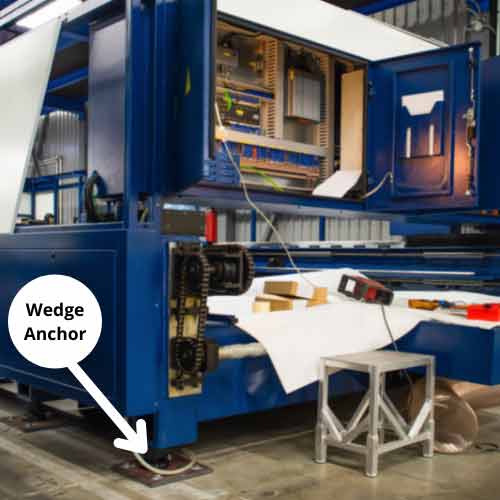bs hex bolt factories
Dec . 11, 2024 08:23 Back to list
bs hex bolt factories
The Importance of BS Hex Bolt Factories in Modern Manufacturing
In today’s fast-paced industrial landscape, the production of high-quality fasteners, such as hex bolts, plays a crucial role in various sectors, including construction, automotive, and machinery manufacturing. Among the numerous standards that govern the manufacturing of these essential components, the British Standard (BS) specifications stand out for their rigorous quality assurance. BS hex bolt factories are pivotal in ensuring that these standards are met, thereby providing reliable products that meet the demands of various applications.
Understanding BS Hex Bolts
BS hex bolts are hexagonal-headed fasteners designed with a specific thread and diameter conforming to British Standards. These bolts are widely utilized due to their ease of use and strength, making them suitable for a variety of applications from securing structural components to fastening machinery parts. The robust design of hex bolts, combined with the stringent testing protocols associated with BS specifications, ensures that these fasteners can withstand heavy loads and extreme conditions, providing both safety and reliability.
The Role of Manufacturing Facilities
BS hex bolt factories are equipped with advanced machinery and technology designed to optimize the manufacturing process. These facilities employ skilled workers who are trained to operate equipment that can produce fasteners with precise dimensions and properties. Every step of the production process, from the selection of raw materials to the final quality assurance tests, plays a vital role in ensuring that the end product meets the required standards.
The manufacturing process typically begins with the selection of high-grade steel, which is essential for producing durable hex bolts. The steel is then subjected to various processes such as forging, machining, and surface treatment. Each of these processes requires meticulous attention to detail to maintain the integrity and strength of the bolts. For instance, forging helps to realign the grain structure of the steel, while surface treatments can enhance resistance to corrosion and wear.
Quality Assurance
bs hex bolt factories

One of the standout features of BS hex bolt factories is their commitment to quality assurance. Every batch of bolts produced undergoes rigorous testing to ensure they meet BS specifications. This includes tensile strength tests, hardness evaluations, and inspections for dimensional accuracy. Factories often utilize advanced testing equipment and procedures to identify any defects before the products reach the market.
Moreover, compliance with BS standards not only ensures product reliability but also fosters trust among customers. Industries that rely on these fasteners can operate with confidence knowing that the components they use meet strict safety standards. This is particularly crucial in sectors like construction and automotive, where failure of a single component can have catastrophic consequences.
Innovation and Sustainability
As technology evolves, BS hex bolt factories are increasingly adopting innovative manufacturing techniques that enhance efficiency and sustainability. Automation, for instance, streamlines the production process, reducing human error and increasing output. Additionally, many factories are embracing environmentally friendly practices, such as recycling scrap materials and reducing waste, to minimize their carbon footprint.
The implementation of smart manufacturing practices, such as real-time monitoring and predictive maintenance, also contributes to improving productivity and reducing operational costs. These advancements not only benefit the manufacturers but also ensure that customers receive high-quality products in a timely manner.
Conclusion
In conclusion, BS hex bolt factories play an indispensable role in the manufacturing sector, providing high-quality fasteners that adhere to stringent British Standards. Through their commitment to advanced manufacturing processes, rigorous quality assurance, and sustainable practices, these facilities ensure that industries across the globe receive the reliable components necessary for their operations. As the demand for such fasteners continues to grow, these factories will remain at the forefront of innovation and quality assurance in manufacturing, contributing to the safety and efficiency of myriad applications.
Latest news
-
High-Quality Panel Stud Bolt Reliable Panel Stud Bolt Factory & Suppliers
NewsJul.08,2025
-
High-Precision Fine Thread Locknuts Manufacturer & Supplier Custom Solutions
NewsJul.08,2025
-
PH Imperial Stud Bolt – High Strength Fasteners from Leading Supplier & Factory
NewsJul.07,2025
-
High-Quality Allen Wrench Bolts Leading Factory, Company & Suppliers
NewsJul.07,2025
-
Wholesale Ball Stud Bolt - High Quality Supplier & Factory Price Reliable Wholesale Ball Stud Bolt Company
NewsJul.06,2025
-
High-Strength Alloy Bolts Manufacturer & Supplier Quality Alloy Fasteners Factory
NewsJul.06,2025
